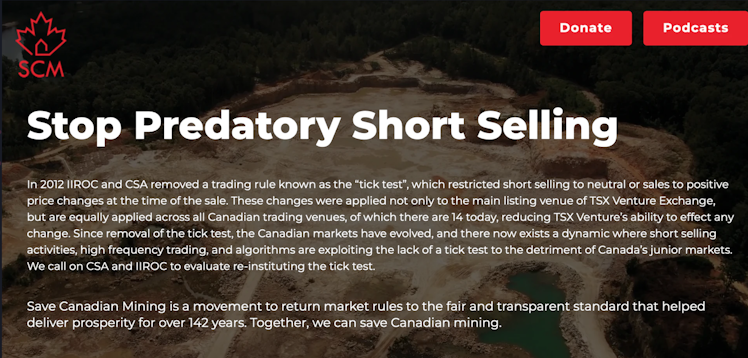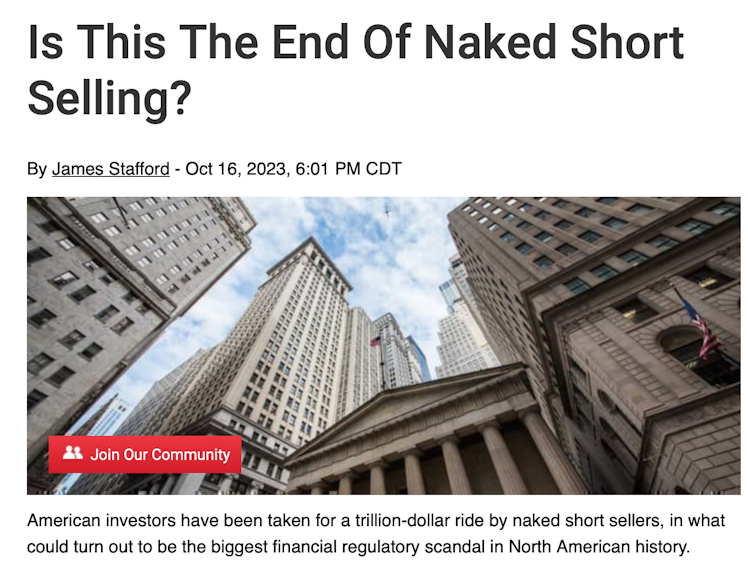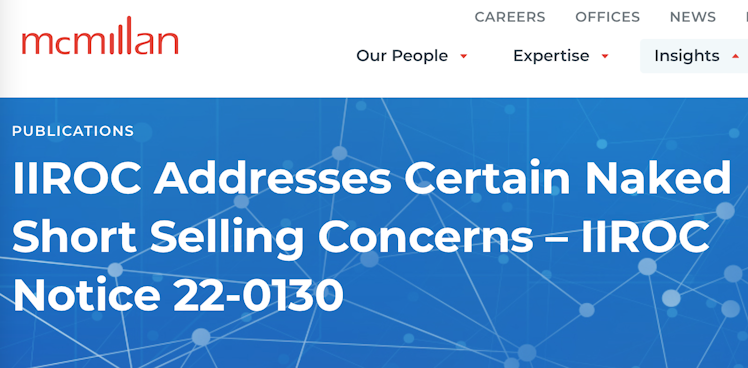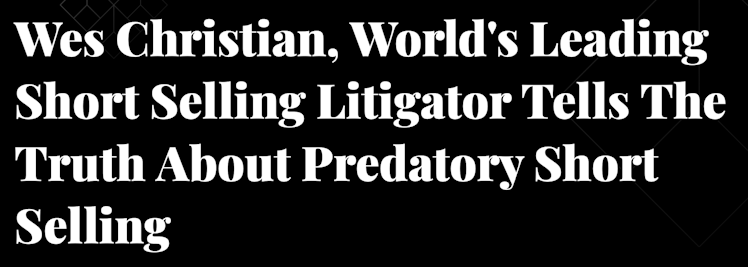Trending Assets
Top investors this month
Trending Assets
Top investors this month
Listen To The Lorax
"The retail investor using his/her online trading quote system doesn’t stand a chance – especially when playing on an exchange with little volume, such as the TSX Venture."
"Canada has been and remains an outlier."

I first wrote about the Save Canadian Mining initiative back in May and quite honestly it saddened me to see the post didn't garner much interest - because it matters, and UNLESS someone like you cares a whole awful lot, nothing is going to get better. It's not.
If there's one thing that frustrates me in life, it's hearing people say that 'one voice can't make a difference' because it can - especially when one voice joins together with hundreds of others and the noise of the chorus then becomes too loud to ignore.

Link to May 2nd post:

I had the privilege of meeting Terry Lynch, Founder of the SCM movement & CEO of Power Nickel, at PDAC in Toronto last year. I share many of his concerns about the damage being done to retail investors and junior mining companies after the 2012 removal of the trading rule known as the 'tick test'. As the SCM site states, this has created "a dynamic where short selling activities, high frequency trading, and algorithms are exploiting the lack of a tick test to the detriment of Canada's junior markets."
Terry posted an update on October 17th 'to share some encouraging news that could mark a turning point in the fight against this harmful practice' (of naked short selling):
USA brokers are now being held responsible for the actions of their clients. If clients engage in illegal naked short selling or spoofing and cause damage to the companies being targeted, brokers can be held liable.
You can read more about the recent ruling in the US in the Oil Price article linked below, but for those that invest via Canadian exchanges, our battle is far from over.

On September 29, Federal District Court Judge Lorna Schofield of the Southern District of New York issued a ruling that has the potential to significantly disrupt Wall Street compliance, and is a major first step towards protecting retail investors from fraud.
In Harrington Global Opportunity Fund Ltd. v. CIBC World Markets, Inc et.al, Judge Schofield found that broker-dealers may be primarily liable for manipulative trading initiated by their customers because they serve as “gate-keepers” of trading on securities exchanges.

In August, 2022, the IIROC addressed certain naked short selling concerns - seemingly leaving much of the regulation open to interpretation.
As IIROC has not defined the meaning of “reasonable expectation” in UMIR, the Guidance provides some clarification. IIROC’s predecessor has previously stated that the “reasonable expectation” standard “merely requires that the vendor not make a sale knowing that the securities cannot be borrowed and that the vendor take ‘reasonable steps’ to attempt to borrow the securities to make delivery on closing” [emphasis added].[4] The Guidance imposes a higher standard, requiring that the vendor have “reasonable certainty” that it can access sufficient securities to settle the trade, and that a vendor must not enter a short sale order if it “knows or ought reasonably to know” that sufficient securities will not be available for settlement. This should place more of an onus on a Participant to take steps to ensure that it can settle the short sale order prior to execution of the order, but it is unclear as to what such steps might entail.
The Guidance may bring Canadian short selling rules more in line with other jurisdictions, of which Canada has been and remains an outlier.[5] For example, the U.S. requires that broker-dealers “identify a source of borrowable stock” before executing a short sale trade.[6] It may be that in order for a Participant to have “reasonable certainty” that such Participant has access to sufficient securities to settle a short sale trade, the Participant necessarily has to identify a source of securities to cover the trade. However, without more guidance as to the meaning of “reasonable certainty”, it is difficult to assess what is required of a Participant, absent future examples of enforcement.

A recent article by Niall McGee in the Globe & Mail mentions a number of reasons Canadian junior exploration companies are struggling and many might not survive, while others are looking to list on alternate exchanges where investors and regulatory framework offer greater support.
Toronto-based critical minerals and gold exploration company Resouro Gold Inc. RAU-X went public last year on the TSX Venture Exchange, but the company’s shares barely traded because of little or no demand from Canadian investors.
“I went to this year’s PDAC [Prospectors & Developers Association of Canada annual convention] and spent two weeks trying to get people interested in a financing to keep the company alive, but didn’t get any interest,” said Christopher Eager, chief executive of Resouro. “I went to Sydney and closed an oversubscribed capital raising in two days, and then went on to do a second and third capital raising at higher prices.”
Among the investors was Australian institution Regal Funds Management, which has about US$6-billion under management. Owing to the sudden interest from investors, Resouro’s share price shot up 300 per cent.
The company is hoping to develop a titanium and rare earths project in Brazil, and it is now pursuing a listing on the Australia Securities Exchange to cater to its new investor base. If liquidity doesn’t pick up in Canada, Mr. Eager says he’ll likely delist the company entirely in this country.

I strongly encourage you to take a moment & subscribe to receive email updates from SCM and add your voice to the chorus; hopefully together we can make a change.
Save Canadian Mining is a movement to return market rules to the fair and transparent standard that helped deliver prosperity for over 142 years. Together, we can save Canadian mining.
"You done good, beanpole..."

savecanadianmining.com
Save Canadian Mining
Already have an account?